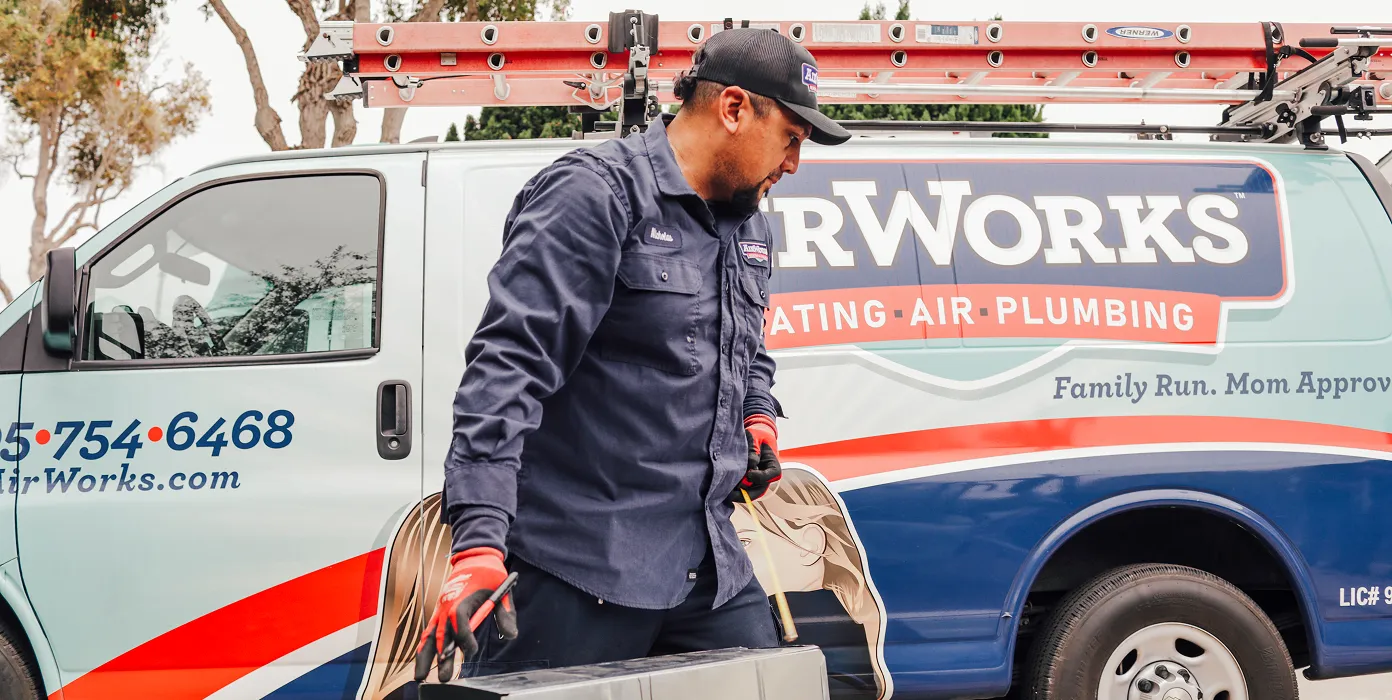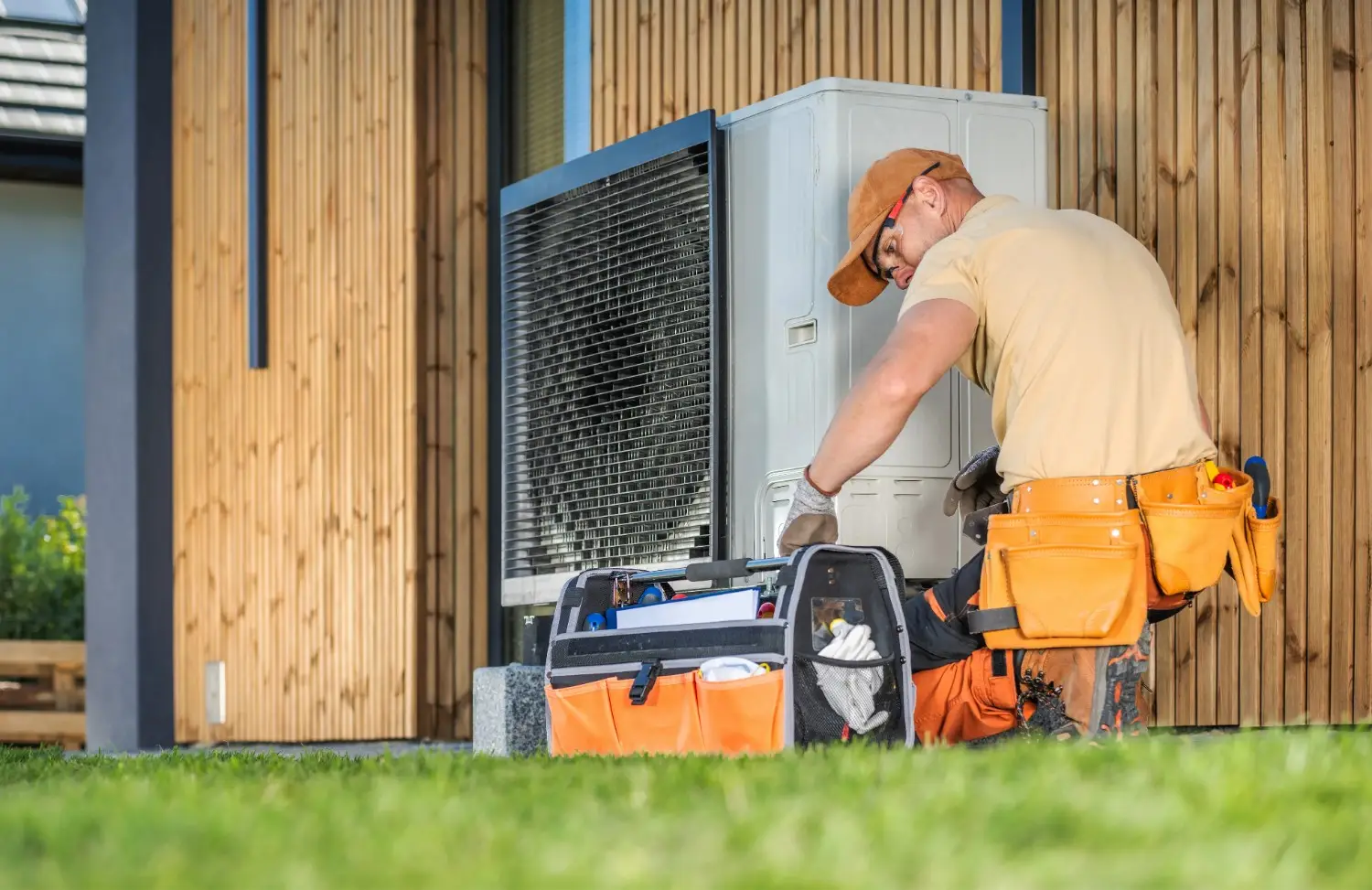Heat Pump Repair in Thousand Oaks, CA
Serving Ventura & Sacramento Counties

Expert Heat Pump Repair in Thousand Oaks, CA
A fully functional heat pump is essential for year-round comfort in your Thousand Oaks home, providing efficient cooling during warm summers and reliable warmth on chilly winter nights. When this crucial system falters, it can disrupt your daily life, lead to uncomfortable indoor temperatures, and cause a sudden spike in your energy bills. A swift and accurate repair is not just about restoring comfort; it's about protecting your investment and ensuring your home’s HVAC system operates safely and efficiently. Our professional repair services are designed to diagnose the root cause of any issue and implement lasting solutions for all makes and models.
Is Your Heat Pump Showing Signs of Trouble?
Heat pump problems often begin with subtle signs before escalating into a complete breakdown. Being aware of these early warning signals allows you to seek professional help before minor issues become major, costly repairs. If you notice any of the following symptoms, your heat pump likely requires a professional inspection.
- Insufficient Heating or Cooling: The system runs, but the air coming from your vents is not as warm or cool as it should be, or the temperature in your home never reaches the thermostat setting.
- Unusual or Loud Noises: Healthy heat pumps operate with a consistent, low hum. Grinding, squealing, rattling, or banging sounds are clear indicators of mechanical problems, such as a failing motor or loose components.
- Constant On-and-Off Cycling: If your heat pump turns on and off every few minutes, a behavior known as short cycling, it could be due to an oversized system, a faulty thermostat, or a clogged filter restricting airflow.
- Ice or Frost Buildup: While a thin layer of frost can be normal, a unit completely covered in ice—especially on the outdoor coils during winter—points to a problem with the defrost cycle, low refrigerant, or poor airflow.
- Sudden Increase in Energy Bills: A malfunctioning heat pump has to work harder to heat or cool your home, causing a noticeable and unexplained rise in your monthly utility costs.
- Leaking Water: Puddles of water forming around the indoor or outdoor unit can signal a clogged condensate drain, a refrigerant leak, or a frozen evaporator coil.

Common Heat Pump Problems We Diagnose and Fix
Our experienced technicians have the diagnostic tools and expertise to pinpoint the exact cause of your heat pump's failure. We address a comprehensive range of issues to restore your system’s performance.
- Refrigerant Leaks: Refrigerant is the lifeblood of your heat pump, responsible for transferring heat. A leak will diminish its heating and cooling capacity. We locate and repair leaks and recharge the system to the manufacturer’s specifications.
- Compressor Failure: The compressor is the heart of the system, circulating refrigerant. Problems with this component are serious and can be caused by electrical issues or a lack of maintenance.
- Electrical and Control Board Failures: Faulty capacitors, worn contactors, or malfunctioning control boards can prevent your heat pump from starting or running correctly. These electrical components are critical for safe operation.
- Fan Motor Malfunctions: Both the indoor and outdoor units have fans that are essential for air movement. A broken motor in either unit will halt the heat transfer process, causing the system to overheat or freeze up.
- Thermostat and Sensor Issues: Sometimes the problem isn't the heat pump itself but the thermostat that controls it. Inaccurate temperature readings or a loss of connection can cause erratic system behavior.
- Defrost Cycle Problems: In heating mode, your heat pump must periodically run a defrost cycle to melt frost from the outdoor coil. If this cycle fails, ice will build up and severely hamper performance.
Our Professional Heat Pump Repair Process
We follow a systematic process to ensure every repair is thorough, transparent, and effective.
- Comprehensive System Diagnosis: A technician will perform a detailed inspection of your entire heat pump system, including the indoor air handler and the outdoor unit. This involves checking electrical connections, measuring refrigerant levels, inspecting coils, and testing mechanical components to accurately identify the source of the problem.
- Clear Explanation and Recommendations: Once the diagnosis is complete, our technician will explain the findings to you in clear, understandable terms. You will be informed of what is wrong with the unit, what is required to fix it, and the options available to you.
- Precision Repair Work: With your approval, the technician will proceed with the repair using high-quality parts and industry-best practices. Our team is trained to work meticulously, ensuring every component is installed and calibrated correctly for optimal performance.
- Final System Testing: After the repair is finished, we don’t just pack up and leave. We test the heat pump’s full operational cycle to verify that it is heating and cooling effectively, that airflow is strong, and that the initial problem has been completely resolved.
Making the Right Choice: Repair vs. Replacement
A common dilemma for homeowners facing a significant repair is whether to fix the existing unit or invest in a new one. The right decision depends on several key factors.
- Age of the Unit: Most heat pumps have a service life of 10 to 15 years. If your unit is approaching or has surpassed this age, investing in a major repair may not be cost-effective in the long run.
- Frequency and Cost of Repairs: If your heat pump has required multiple service calls over the last couple of years, it may be a sign that the system is becoming unreliable. Constant repairs can quickly add up, and their total cost may be better put toward a new, dependable system.
- Energy Efficiency: Technology has advanced significantly. A new, high-efficiency heat pump can provide substantial savings on your monthly energy bills compared to an older, less efficient model, helping the new system pay for itself over time.
- Refrigerant Type: Older heat pumps often use R-22 refrigerant, which is being phased out due to its environmental impact. The cost of R-22 is rising, making repairs on older systems increasingly expensive. Newer systems use the more environmentally friendly R-410A refrigerant.
Frequently Asked Questions About Heat Pump Repair
What factors determine the cost of a heat pump repair?
The cost depends on the nature of the problem. Replacing a minor electrical component like a capacitor will be less expensive than replacing a major part like the compressor motor. The price is influenced by the cost of the replacement part and the amount of labor required to complete the repair.
How long does a typical heat pump repair take?
Many common repairs, such as fixing electrical issues or recharging refrigerant, can often be completed in a single visit within a few hours. More complex repairs that require ordering a specific part may take longer. Our goal is always to restore your system as quickly and efficiently as possible.
Can I perform any troubleshooting myself before calling a professional?
Yes. Before scheduling a service call, you can check a few things. Ensure your thermostat is set to the correct mode ("heat" or "cool") and temperature. Check your home’s circuit breaker to see if it has tripped. You should also inspect your air filter and replace it if it is dirty, as a clogged filter can cause many performance issues. If these steps don’t solve the problem, it is time to call a professional.


